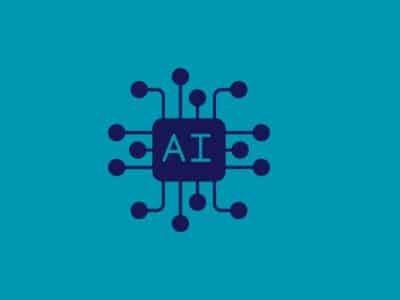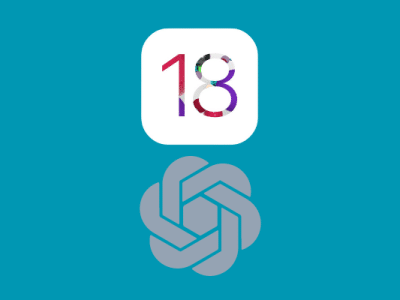Technological advancements have permeated nearly every facet of our lives in today’s fast-paced world, including recruitment. Artificial intelligence (AI) has emerged as a potent instrument as businesses strive to streamline hiring procedures and locate the ideal team member. However, as we enter this brave new world, it is essential to consider whether the increasing reliance on AI technology in recruitment signals the beginning of a more promising future or the end of conventional processes driven by humans.
There are several significant advantages to employing AI technology in recruitment. One of the main benefits is the capacity to process and analyze enormous amounts of data at an unprecedented rate. AI algorithms can sort through many applications and resumes and find the best candidates based on specific criteria set by employers. Companies can fill positions quickly and effectively because this expedites the hiring process.
Additionally, AI-powered recruitment platforms like Lensa can assist in eliminating selection biases. Inadvertently favoring certain demographics in traditional hiring practices can perpetuate inequality and limit organizational diversity. Conversely, AI uses data-driven decision-making and objective algorithms to guarantee impartial and fair candidate evaluations.
Recruitment software has also significantly impacted the hiring landscape. Job posting, applicant tracking, candidate screening, and interview scheduling are all streamlined by these software solutions. Recruitment software frees HR professionals to concentrate on more strategic tasks like building relationships with candidates and evaluating cultural fit by automating time-consuming and repetitive tasks.
Collaboration among hiring teams can also be enhanced by recruitment software. Recruiters and hiring managers can collaborate seamlessly with centralized platforms that enable real-time communication and document sharing, reducing miscommunication and ensuring a smoother recruitment process.
However, it is essential to consider the potential drawbacks as we adopt AI-driven recruitment technologies. The human touch traditionally provided by recruitment processes is one of the main concerns. Even though AI can quickly process data and match job seekers to openings, it may lack human recruiters’ nuanced understanding and intuition. The accuracy with which AI technology can evaluate a candidate’s soft skills, cultural fit, and growth potential is still a challenge.
The possibility of bias in AI algorithms is another contention. There have been instances where AI algorithms have perpetuated societal biases, despite efforts to create fair and impartial AI systems. AI-driven recruitment tools may accidentally perpetuate discrimination, resulting in a lack of diversity and inclusion in the workplace if not carefully designed and monitored.
A hybrid approach to recruitment is required for businesses to balance the advantages of AI technology and the personal touch. By joining the productivity of computer-based intelligence calculations with human instinct and judgment, companies can guarantee an all-encompassing assessment of competitors and pursue more educated employment choices. Utilizing AI tools for initial screening and shortlisting is part of this, followed by human-led interviews and reviews to evaluate soft skills and cultural fit.
In conclusion, the way candidates and employers interact has undoubtedly changed due to the increasing use of AI technology in recruitment, as demonstrated by businesses. It has sped up the hiring process, cut down on biases, and given insights based on data. In recruitment, however, we must exercise caution and balance AI efficiency and the human touch.
Even though AI algorithms can quickly process data and find the best candidates, they still have trouble understanding soft skills and fit cultural nuances. In addition, to guarantee inclusive and fair hiring practices, careful monitoring and oversight of the potential for bias in AI algorithms is required.
A hybrid strategy combining AI’s advantages with human expertise is the path forward for recruiting technology. Repetitive tasks can be automated, resumes can be scanned, and AI-powered platforms can find potential matches. Because of this, recruiters can concentrate on engaging candidates, carrying out in-depth interviews, and evaluating intangible qualities that transcend data.
Diversity and inclusion should be prioritized when designing and using recruitment technology to address concerns about biases in AI algorithms. This entails regularly checking algorithms for preferences, evaluating their performance with a variety of datasets, and including a variety of viewpoints in the process of development.
AI should be used with transparency and accountability to guarantee that hiring decisions are equitable, objective, and aligned with the organization’s values.
In addition, to adapt to the shifting recruitment landscape, businesses should invest in ongoing HR professional development. The abilities required to use AI-driven tools effectively are changing as technology does. HR experts ought to have the information and mastery to use computer-based intelligence innovation while keeping a human-driven way of dealing with up-and-comer evaluation and determination.
It is essential to balance the efficiency and objectivity of AI and the human elements that make recruitment personal and meaningful, even though the future of recruitment technology is unquestionably exciting. Adopting AI technology does not signify the end of conventional recruitment methods; it is merely a transformation that improves and streamlines the procedure.
In conclusion, introducing artificial intelligence (AI) into the recruitment process marks the beginning of a new era. AI-driven platforms can transform the hiring landscape by expediting processes, reducing biases, and providing data-driven insights.
However, the human touch remains essential when evaluating soft skills, determining cultural fit, and making informed decisions. Organizations can navigate the evolving recruitment landscape and guarantee fair, inclusive, and successful hiring outcomes by adopting a hybrid strategy combining AI’s advantages with human judgment.















Comments